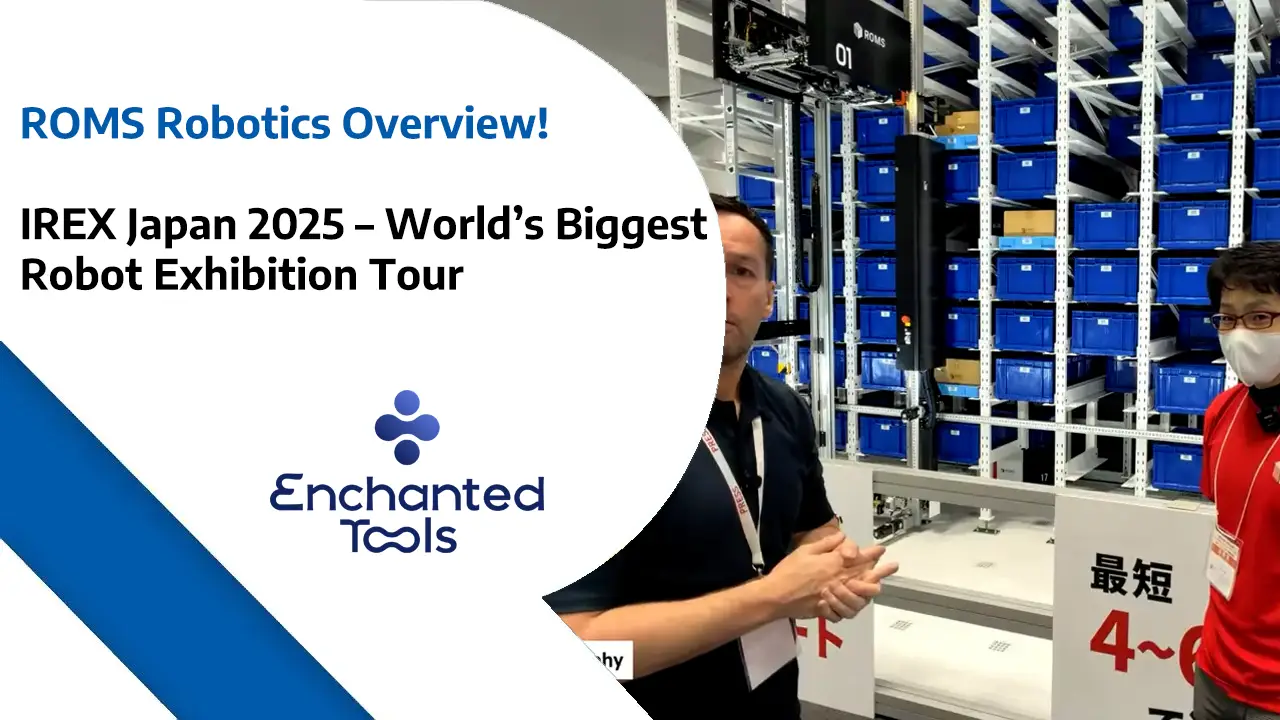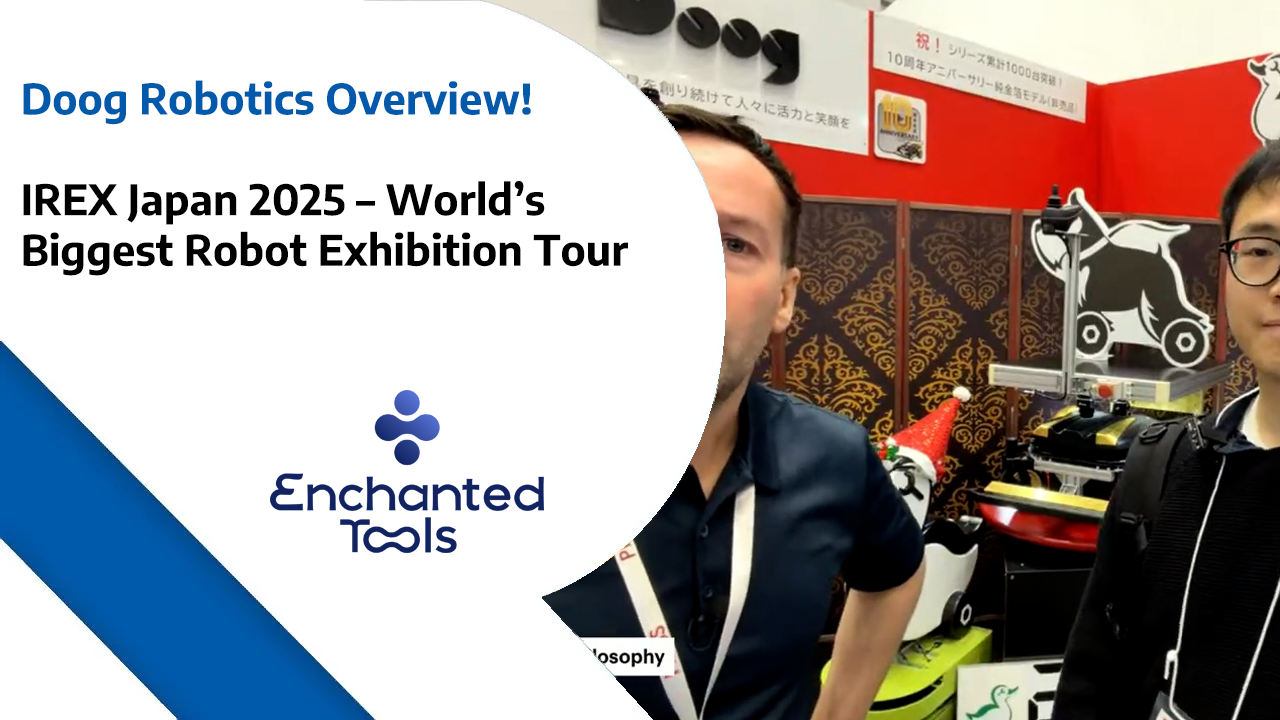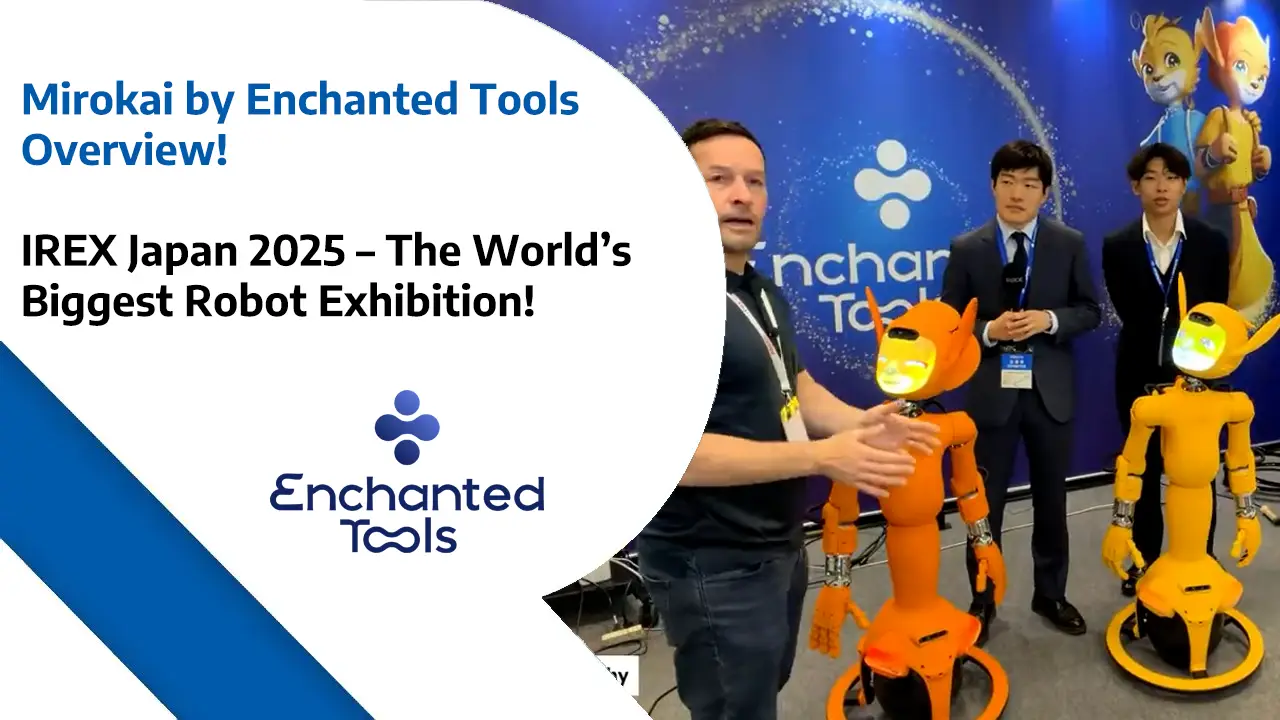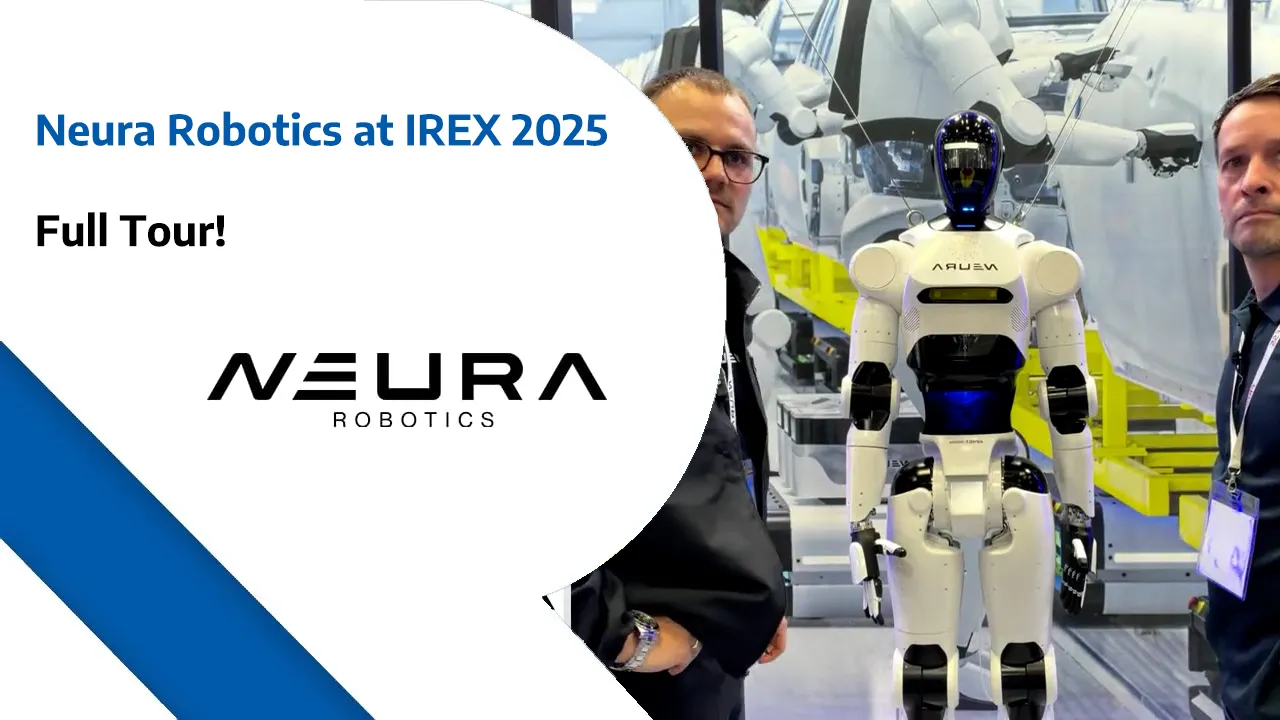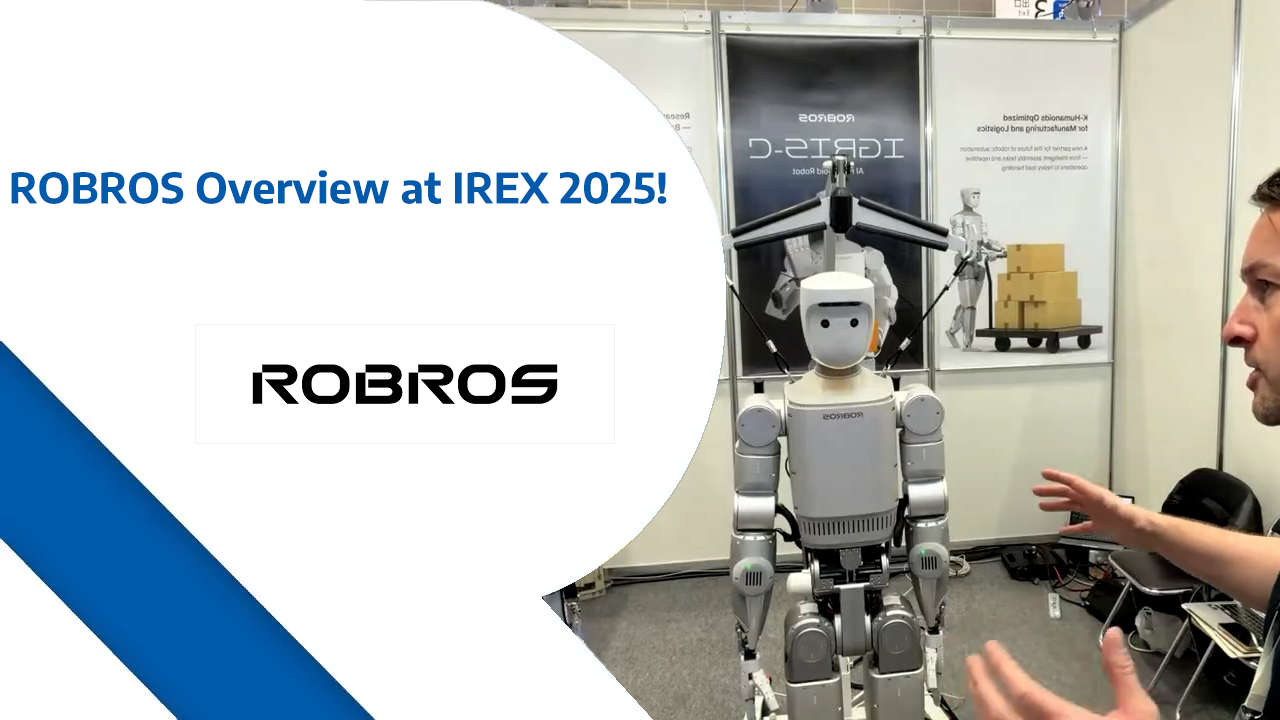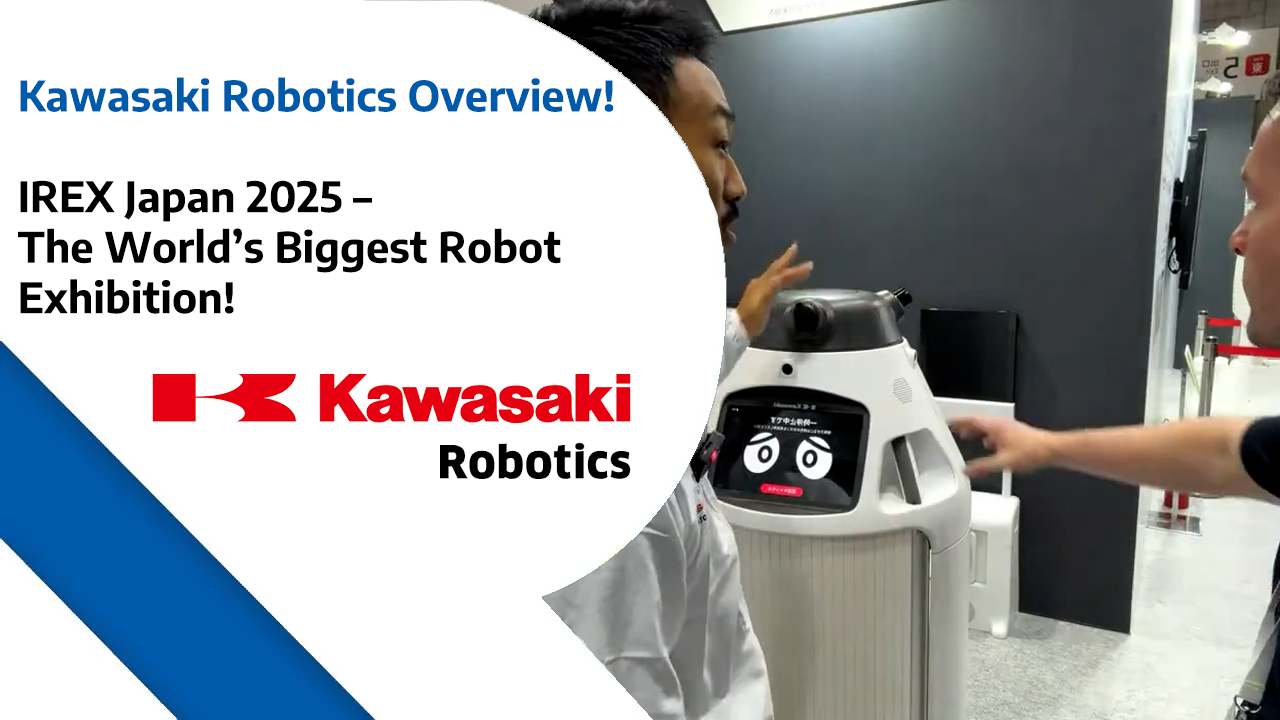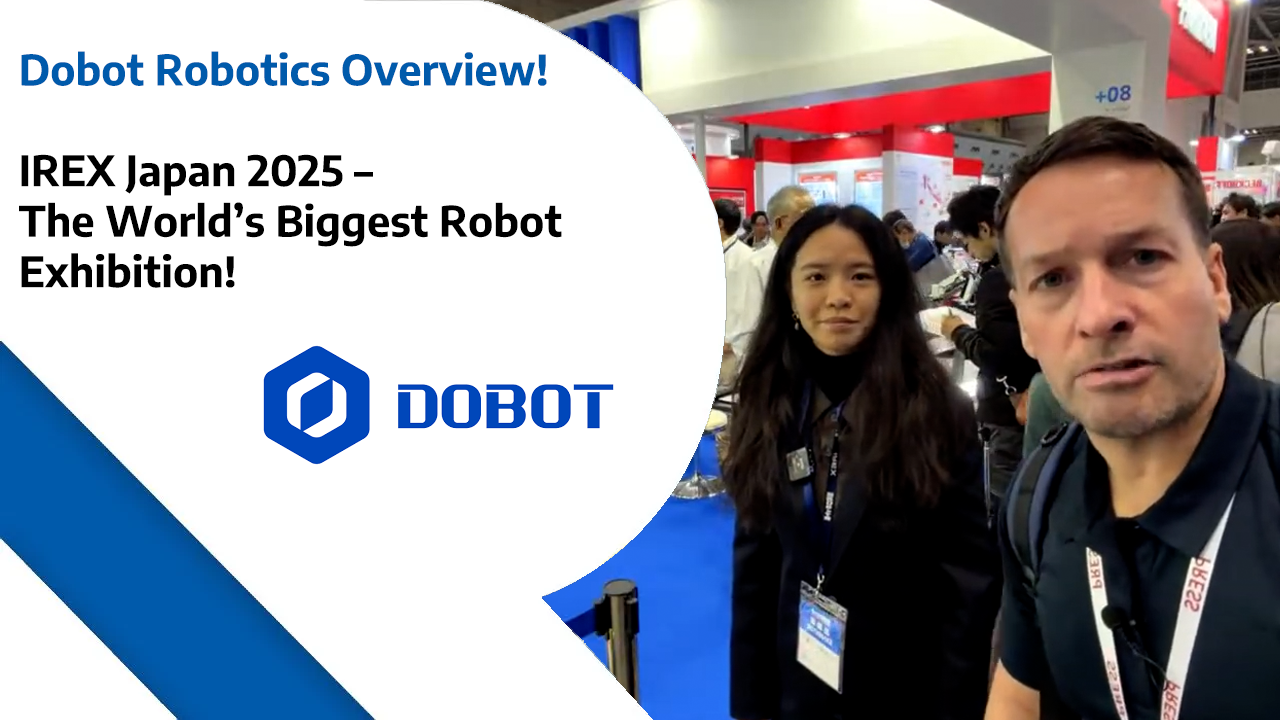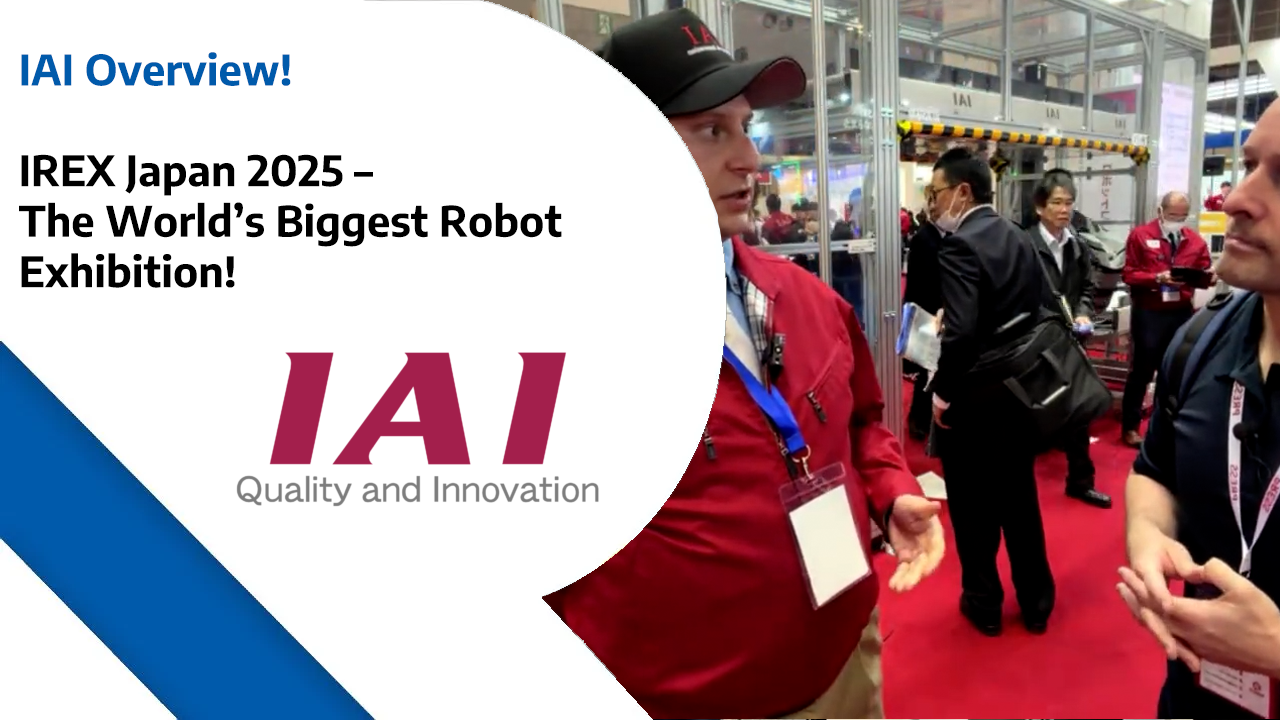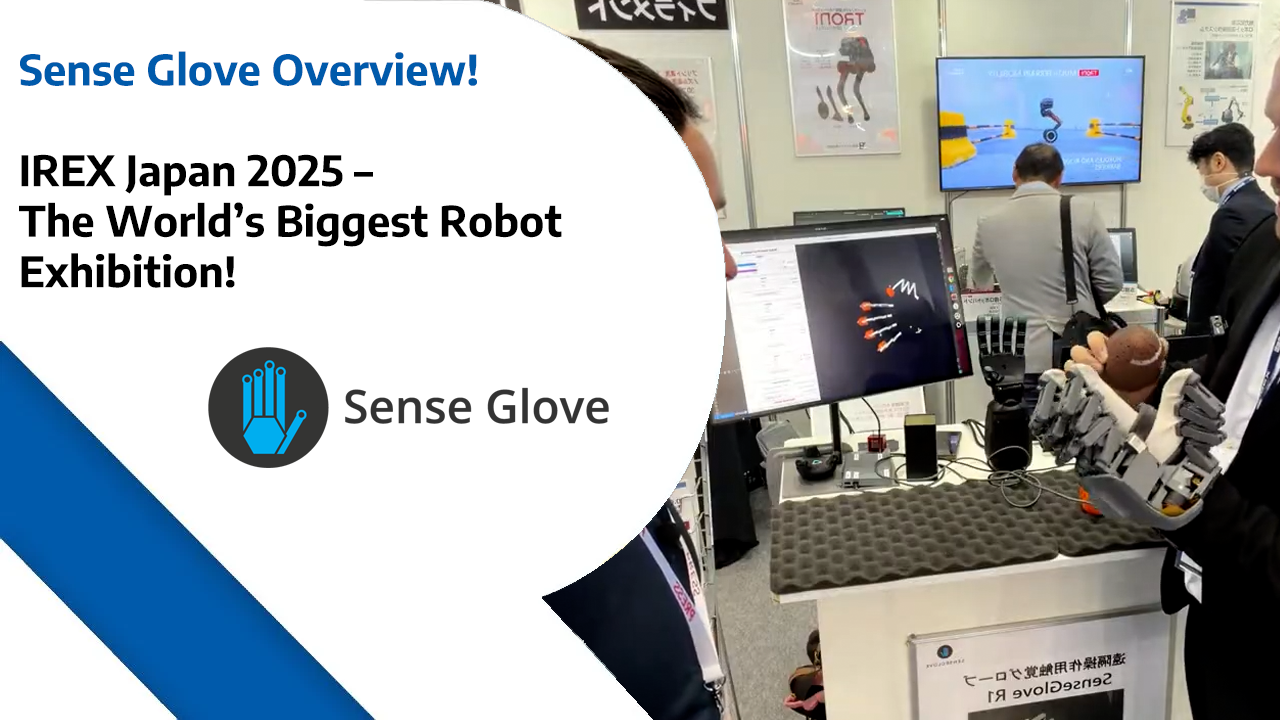ROMS Robotics Overview! – IREX Japan 2025
ROMS Robotics Overview – IREX Japan 2025
Inside the World’s Largest Robot Exhibition
The global robotics industry continues to accelerate at an extraordinary pace, and nowhere is that momentum more visible than at IREX Japan 2025 — the world’s largest and most influential robot exhibition, held in Tokyo.
Every two years, IREX (International Robot Exhibition) becomes the epicentre of robotics innovation, bringing together the most advanced robot manufacturers, AI developers, automation integrators, and humanoid pioneers from across the globe.
In this feature, we take a deep dive into one of the standout exhibitors from the show floor:
ROMS Robotics
Their presence at IREX 2025 demonstrated not only technological innovation — but real commercial readiness — with robotic systems designed for deployment across logistics, manufacturing, service environments, and smart infrastructure.
First Impressions: A Robotics Company Focused on Deployment
One of the biggest challenges in robotics today is the gap between prototype and deployment.
Many robots look impressive on exhibition stands but lack real-world commercial readiness.
ROMS Robotics stood out because their solutions were not conceptual — they were operational.
Their booth focused heavily on practical automation, showcasing robots already working in:
Warehouses
Distribution centres
Manufacturing plants
Customer service environments
Security patrol applications
This deployment-first mindset aligns closely with the growing demand from businesses seeking ROI-driven robotics rather than experimental technology.
Autonomous Mobile Robots (AMRs)
A major highlight from the ROMS Robotics stand was their range of Autonomous Mobile Robots (AMRs).
These robots are designed to move goods, materials, and inventory across facilities without human intervention.
Key capabilities included:
Dynamic route navigation
Obstacle avoidance
Fleet coordination
Warehouse management system integration
Real-time mapping
AMRs are rapidly becoming the backbone of modern logistics operations, particularly as labour shortages continue to affect warehousing and fulfilment sectors globally.
ROMS Robotics demonstrated how their AMR platforms could be deployed quickly without requiring major infrastructure changes — a critical factor for SMEs and enterprise clients alike.
Logistics & Warehouse Automation
Beyond standalone AMRs, ROMS Robotics presented integrated logistics ecosystems.
These systems combined mobile robots with:
Automated storage systems
Conveyor integrations
Picking assistance robots
Inventory scanning technology
The focus was on creating end-to-end automation workflows — reducing human handling while improving speed and accuracy.
Warehouse automation is one of the fastest-growing robotics sectors worldwide, driven by e-commerce expansion and same-day delivery expectations.
ROMS Robotics is positioning itself firmly within this growth curve.
AI Service Robots
Another key pillar of the ROMS Robotics portfolio is AI-powered service robotics.
These robots are designed for front-of-house and customer-facing environments such as:
Hotels
Retail stores
Hospitals
Airports
Corporate receptions
Capabilities demonstrated included:
AI voice interaction
Multilingual communication
Wayfinding & guidance
Customer check-in assistance
Promotional engagement
Service robots are increasingly being adopted not just for novelty — but for operational augmentation — supporting staff while enhancing customer experience.
Smart Factory Robotics
Manufacturing remains one of the most mature robotics sectors, yet innovation continues to evolve through AI and mobility integration.
ROMS Robotics showcased smart factory solutions including:
Robotic material transport
Production line feeding robots
Automated inspection units
Collaborative robotics integration
These systems are designed to operate alongside human workers, improving productivity while maintaining safety.
With Industry 4.0 initiatives accelerating worldwide, smart factory robotics is becoming less optional and more essential.
Inspection & Security Robotics
One of the most commercially interesting segments on display was ROMS Robotics’ inspection and patrol robotics platforms.
These robots are designed to autonomously monitor environments such as:
Industrial facilities
Warehouses
Energy plants
Commercial buildings
Outdoor infrastructure
Capabilities included:
Thermal imaging
CCTV monitoring
Intrusion detection
Environmental sensing
Remote reporting
As security labour costs rise, autonomous patrol robots are becoming an attractive alternative or supplement to traditional guarding services.
Designed for Scalability
A consistent theme across the ROMS Robotics portfolio was scalability.
Their systems are designed to grow with client operations — starting with pilot deployments and expanding into full robotic fleets.
This modular approach reduces adoption risk and allows businesses to phase automation investments.
From a consultancy standpoint, this is critical — as many organisations want robotics but need staged implementation.
Why Exhibiting at IREX Matters
Exhibiting at IREX is more than brand visibility — it’s global positioning.
The exhibition attracts:
Distributors
Integrators
Government bodies
Enterprise buyers
Investors
For ROMS Robotics, their presence signals international expansion ambitions and partnership readiness.
For companies like ours operating in robot deployment, hire, and consultancy — these exhibitions are vital for identifying emerging technologies suitable for UK and European markets.
The Bigger Picture: Robotics Adoption Is Accelerating
Walking the halls of IREX 2025 reinforced several macro trends:
Labour shortages are driving automation demand
AI integration is becoming standard in robotics
Mobile robotics is outpacing fixed automation growth
Service robots are entering commercial mainstream
Security & inspection robots are scaling rapidly
ROMS Robotics sits across multiple intersecting growth sectors — making them a company to watch closely.
Where ROMS Robotics Fits Commercially
From a deployment perspective, ROMS solutions are highly relevant for:
3PL logistics providers
Retail distribution centres
Manufacturing plants
Airports & hospitals
Facilities management firms
Their robots are not replacing entire workforces — but augmenting operations where labour is scarce, costly, or inefficient.
Final Thoughts
IREX Japan continues to be the global benchmark for robotics innovation — and ROMS Robotics delivered a strong showcase of commercially deployable automation.
Their strength lies not in experimental humanoids — but in practical robotics that businesses can implement today.
As robotics adoption accelerates globally, companies focused on scalable deployment — like ROMS — will play a major role in shaping automation’s real-world impact.
🤝 Sponsorship & Partner Acknowledgements
This exhibition coverage is supported by the following robotics organisations:
🔧 Robot Center
Industrial & Warehouse Robotics Specialists
Robot Center focuses on next-generation automation solutions for warehouses, logistics operators, and manufacturers.
Services include:
Collaborative robot deployment
Warehouse robotics integration
Automation consultancy
ROI audits
Installation & maintenance
Website: https://robotcenter.co.uk/
🎪 Robots of London
Robot Hire & Event Robotics
Robots of London supplies robots for exhibitions, corporate events, brand activations, and hospitality environments.
Robot solutions include:
Humanoid robots
Service robots
Digital signage robots
Robot arms (coffee, drinks & demos)
Meet-and-greet robots
Website: https://robotsoflondon.co.uk/
🧠 Robot Philosophy
Robotics Consultancy & Strategy
Robot Philosophy helps organisations understand, adopt, and monetise robotics through:
Consultancy
Workshops
ROI strategy
Robot audits
Speaking engagements
Website: https://robophil.com/
If you’re a robot manufacturer looking to launch into the UK or Europe — or a business exploring robotics adoption — partnership discussions are always open.
